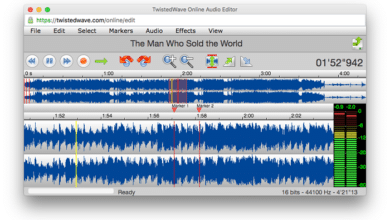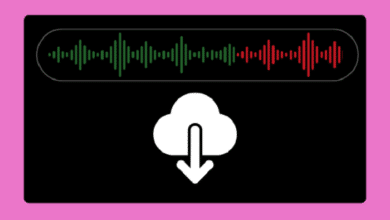Dabba Cartel: Inside India’s Most Notorious Stock Market Syndicate

What is the Dabba Cartel? Understanding the Basics of the Dabba Cartel
The term dabba cartel refers to an illegal network of stock market brokers who operate outside the purview of regulated stock exchanges. The dabba cartel executes trades on paper without routing them through official channels like the NSE or BSE. In essence, traders in the dabba cartel gamble on stock price movements without any actual ownership of securities. These off-the-record transactions not only evade taxes but also allow the dabba cartel to bypass regulatory frameworks.
The dabba cartel thrives in secrecy, often using code language and physical slips of paper—known as “dabbas”—to document trades. The entire operation runs parallel to the formal financial system, making the dabba cartel a prime target for enforcement agencies.
How the Dabba Cartel Operates in India’s Financial Ecosystem
The dabba cartel exploits vulnerabilities in India’s financial ecosystem by targeting high-frequency traders, small investors, and even large clients looking to avoid transaction costs. Instead of routing orders through SEBI-registered exchanges, the dabba cartel uses dummy accounts or completely unregulated software to process trades.
The dabba cartel charges clients minimal brokerage and lures them with the promise of higher profits. Because trades are not reported officially, clients do not pay STT (Securities Transaction Tax), stamp duty, or GST, creating an attractive—but illegal—option for speculative investors. The operational tactics of the dabba cartel mirror those of a black-market financial institution.
The Financial Impact of the Dabba Cartel on the Indian Economy
The dabba cartel creates multiple ripple effects across the financial system. One of the most concerning consequences is tax evasion. Since the dabba cartel does not report trades to authorities, both the government and market regulators lose significant revenue. This leads to reduced collections from transaction taxes, GST, and capital gains.
Moreover, the dabba cartel destabilizes investor sentiment. Legitimate traders and retail investors are affected by the volatility created by artificial price movements driven by the dabba cartel. It contributes to a parallel economy that grows unchecked, weakening the integrity of India’s capital markets.
Why the Dabba Cartel Continues to Thrive Despite Crackdowns
Despite multiple crackdowns by SEBI and the Income Tax Department, the dabba cartel continues to flourish. There are several reasons for this. First, the decentralized nature of the dabba cartel makes it hard to trace. These operations are often small, secretive, and spread across different cities like Mumbai, Surat, Rajkot, and Delhi.
Secondly, the dabba cartel benefits from weak enforcement in Tier-2 and Tier-3 cities. Many of its brokers operate from small offices or even homes, communicating through encrypted apps and burner phones. The dabba cartel also enjoys political and financial backing in some regions, which offers them layers of protection against regulatory action.
Technology and the Modern Face of the Dabba Cartel
With evolving technology, the dabba cartel has upgraded from paper-based trade slips to sophisticated software systems. These systems allow brokers in the dabba cartel to simulate live market environments, creating a convincing illusion for clients. They mimic NSE/BSE dashboards and even offer mobile apps to track “virtual trades.”
Encrypted messaging apps and VoIP services further shield the dabba cartel’s communications. Cloud-based storage ensures there is no physical evidence during raids. This digital evolution of the dabba cartel makes them more agile, organized, and difficult to dismantle.
Government Actions and Regulatory Measures Against the Dabba Cartel
SEBI and the Income Tax Department have been vigilant in identifying and cracking down on the dabba cartel. Regular raids on suspected brokers, freezing of accounts, and imposition of heavy penalties are some measures taken. In 2023 and 2024, multiple busts of the dabba cartel in Gujarat and Maharashtra led to the seizure of crores in unaccounted cash.
Despite these efforts, the dabba cartel often bounces back due to limited legal consequences and slow judicial processes. Authorities are now exploring AI-based surveillance systems and data-matching techniques to detect anomalies that might point to dabba cartel activities. Real-time data analytics could be a game changer in tackling the ever-elusive dabba cartel.
The Future of the Dabba Cartel: Can It Be Eradicated Completely?
Eradicating the dabba cartel is a massive challenge, but not an impossible one. Increased digitization, stricter compliance norms, and better education among investors can help reduce the influence of the dabba cartel. Regulatory sandboxes and tighter scrutiny of brokerage firms are also being considered.
Public awareness plays a critical role. Many investors unknowingly become clients of the dabba cartel, attracted by lower costs. With financial literacy campaigns and stricter KYC norms, the reach of the dabba cartel can be restricted. However, as long as there’s demand for high-risk, tax-free returns, the dabba cartel will likely find ways to adapt.
Conclusion
The dabba cartel is a stark reminder of the gaps that exist within the Indian financial system. Operating in the shadows, it undermines legitimate trading, evades taxation, and fosters a black-market economy. From manual slips to advanced trading software, the dabba cartel has continuously evolved to stay ahead of the law.
While regulatory bodies are intensifying their efforts to dismantle the dabba cartel, complete eradication remains a distant goal unless enforcement, technology, and public awareness align. Investors must be vigilant and avoid the lure of illegal profits. In a market where transparency is key, the existence of the dabba cartel is a threat that cannot be ignored.
FAQs
1. What is the dabba cartel in stock trading?
The dabba cartel is an illegal network of brokers who execute off-market trades that are not recorded on official exchanges like NSE or BSE.
2. How does the dabba cartel affect retail investors?
The dabba cartel creates market distortions and volatility, which can mislead retail investors and impact their investment decisions.
3. Is participating in dabba cartel trading illegal?
Yes, both brokers and clients involved with the dabba cartel are engaging in criminal activity and are liable for prosecution under Indian laws.
4. What actions has SEBI taken against the dabba cartel?
SEBI has conducted multiple raids, frozen assets, and penalized brokers involved with the dabba cartel. However, the network continues to adapt.
5. How can investors protect themselves from the dabba cartel?
Investors should trade only through SEBI-registered brokers and platforms. Avoiding unregulated agents is key to staying clear of the dabba cartel.





